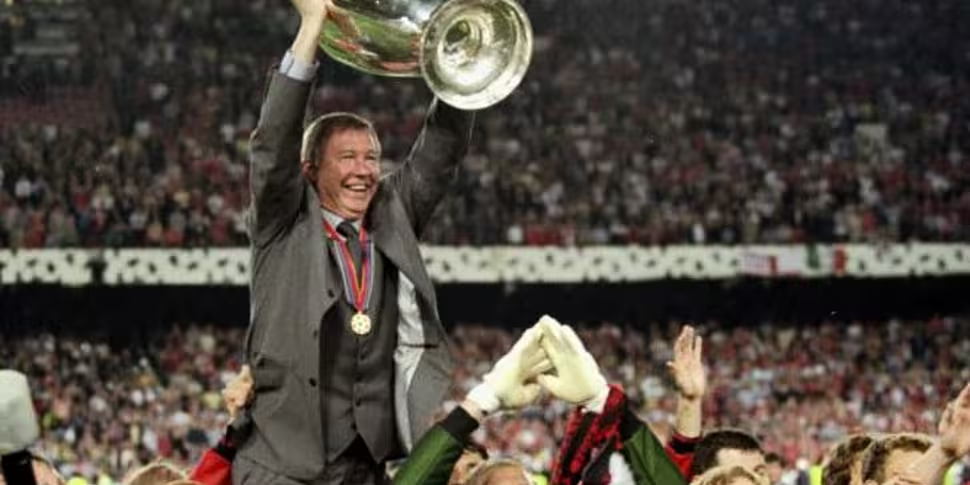Roy Keane - signed from Nottingham Forest, 1993
Roy Keane was not a bargain basement, diamond in the rough signing. Keane was a British record transfer fee when he joined from Nottingham Forest in 1993 £3.75m. However, for all of Keane’s promise there was a clear need for a strong personality to guide the young midfielder through his career. It was such that Ferguson and Keane came to suit each other's needs, perfectly.
For all that Keane and Ferguson’s relationship soured in the years since the former captain’s sudden departure from Old Trafford, it remains that there has rarely, if ever, been a player who so embodied his manager’s finest qualities on the field of play. Keane played with the drive and relentless need to win that sustained Ferguson over 26 ears, but also conducted his game with an understated intelligence and cerebral excellence. This was similar in many ways to how Ferguson has never, for some reason, been considered one of the games great tacticians, despite his litany of prizes.
While occupying the role of midfield general, captain and heartbeat of Manchester United’s sides between the late 90s and early years of the new millennium Keane was rightly regarded as one of the finest midfield players in the world. Ferguson shaped the Cork man into that player, and Keane repaid him with a truck load of domestic trophies and a Champions League. One of a handful of players who defined Ferguson’s era at Old Trafford, and much like all others with that distinction, a player who owes their success to the Scot.
Keane will perhaps be best remembered at United for his performance in the 1999 Champions League semi-final, away to Juventus in Turin. Keane was booked early on and knew he would miss the final. What followed was a match winning performance from United's captain, as he covered every blade of grass in the Stadio Delle Alpi. Ferguson would later say Keane's performance was ‘the most emphatic display of selflessness I have seen on a football field' and ‘it felt an honour to be associated with such a player.’
Eric Cantona – Signed from Leeds United, 1992
Eric Cantona could very well be credited with changing the course of English football, and to the severe detriment of Leeds United. Following their first league title in 20 years the Yorkshire side allowed the Frenchman leave to join their bitter rivals, Manchester United, for just £1,200,000 – a mere £300,000 more than they paid Nimes to bring him to Elland Road the year before.
Leeds’ loss was United, and Ferguson’s almost immeasurable gain. Cantona offered United the unquantifiable genius quality that, allied with an admittedly superb squad and midfield to support him, brought United four titles in the Frenchman’s five years at the club.
Cantona was a notoriously difficult character to manage at times, with the one blemish on his United league record being in the same year in which he was banned for assaulting a fan. Cantona spent nine months on the banned list, while United surrendered their title to Jack Walker’s steel funded upstarts from Blackburn. A talent and personality like Cantona needed expert handling, and Ferguson’s ability to best manage the Frenchman, and best exploit his talents, played a massive role in securing United’s place at the top of the pile during a crucial time as English football moved from national shame to global cash cow.
United won four of the first five Premier League titles and were, by a distance, the club who benefited most from the new era of Sky Sports and modern stadia. Had Cantona remained at Leeds, the fate of that club could have been almost incomparably different.
1999 Treble & Champions League number 1
Ferguson recently told the world he felt his current squad is stronger than the side of Beckham, Scholes, Yorke, Cole et al. who lifted the Premier League, FA Cup and UEFA Champions League all within the space of a couple of weeks in May of 1999.
Regardless of if this team should go on without Ferguson to live up to such great praise, it won’t affect the legacy of the team who won the first ever English league, cup and European Cup treble while also providing the world with the (until then) most dramatic Champions League final comeback of all time, as two injury time goals from Teddy Sheringham and Ole Gunnar Solskjaer snatched the title away from Bayern Munich.
The result also led to Ferguson’s most quoted line, “Football, bloody hell”
1993 Premier League Title number 1
A little over 20 years ago Alex Ferguson picked up his first league title at the club, and United’s first since 1967.
A draw for Aston Villa meant Alex Ferguson was interrupted on the 17th green of Mottram Hall golf club, while Michael Lavender, a United fan, told him of his first league triumph. It would prove to be the base from which Ferguson, and United would build their empire.
Champions League no. 2 – Moscow, 2008
United’s 1999 European triumph was followed by a long period of European disappointment, as the glory of that night in Barcelona haunted every subsequent United side to the point that it became an obsession for the manager.
In 2008, with a side including Cristiano Ronaldo, Carlos Tevez and Wayne Rooney, United reached their first final of the new era of English dominance of Europe, which had commenced – painfully for United – with Liverpool’s 2005 win and 2007 runners up finish.
Chelsea were the opponents, Moscow was the venue, and Ferguson and United returned to the summit of European football with a penalty shootout that followed goals from Cristiano Ronaldo and Frank Lampard.









